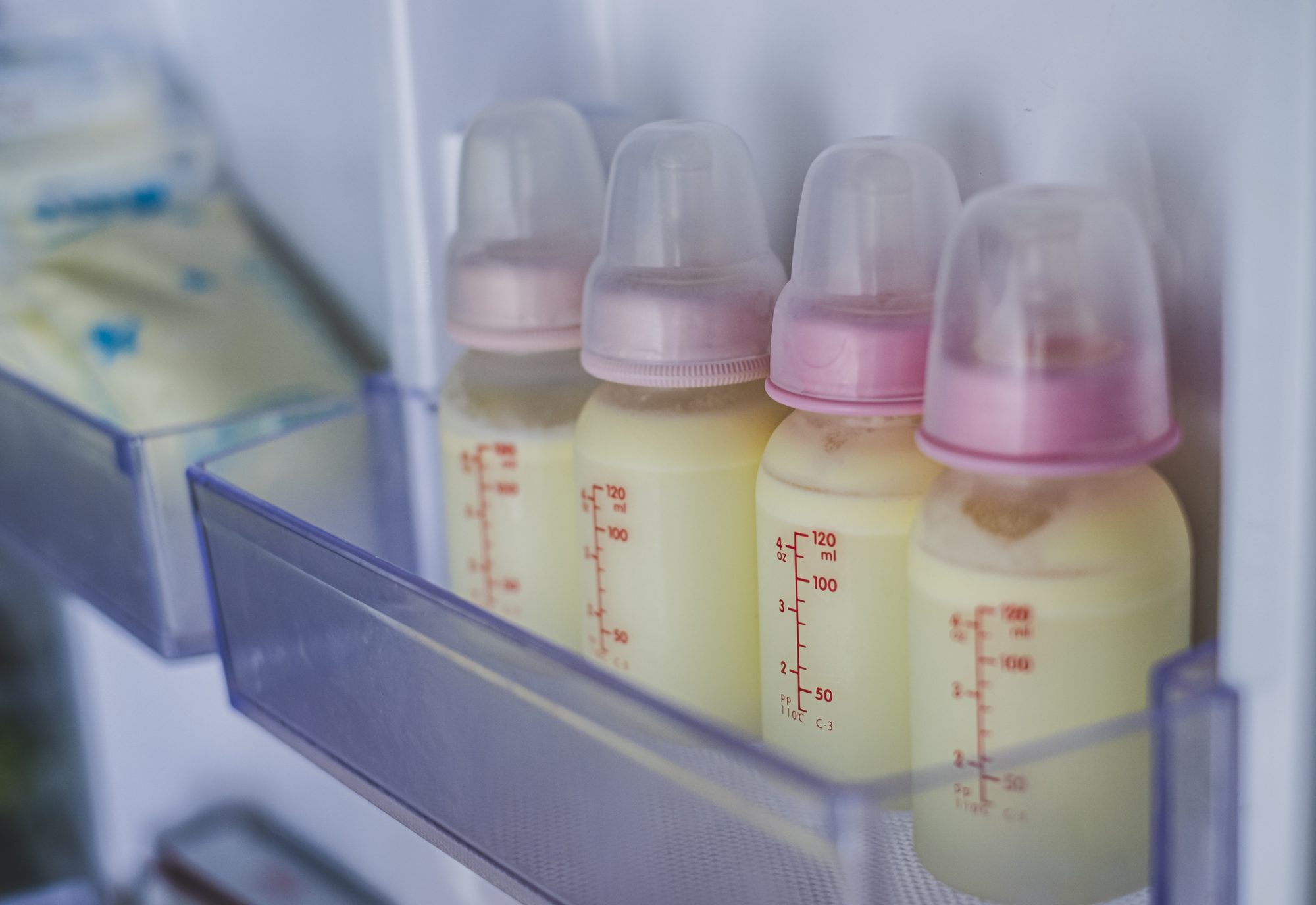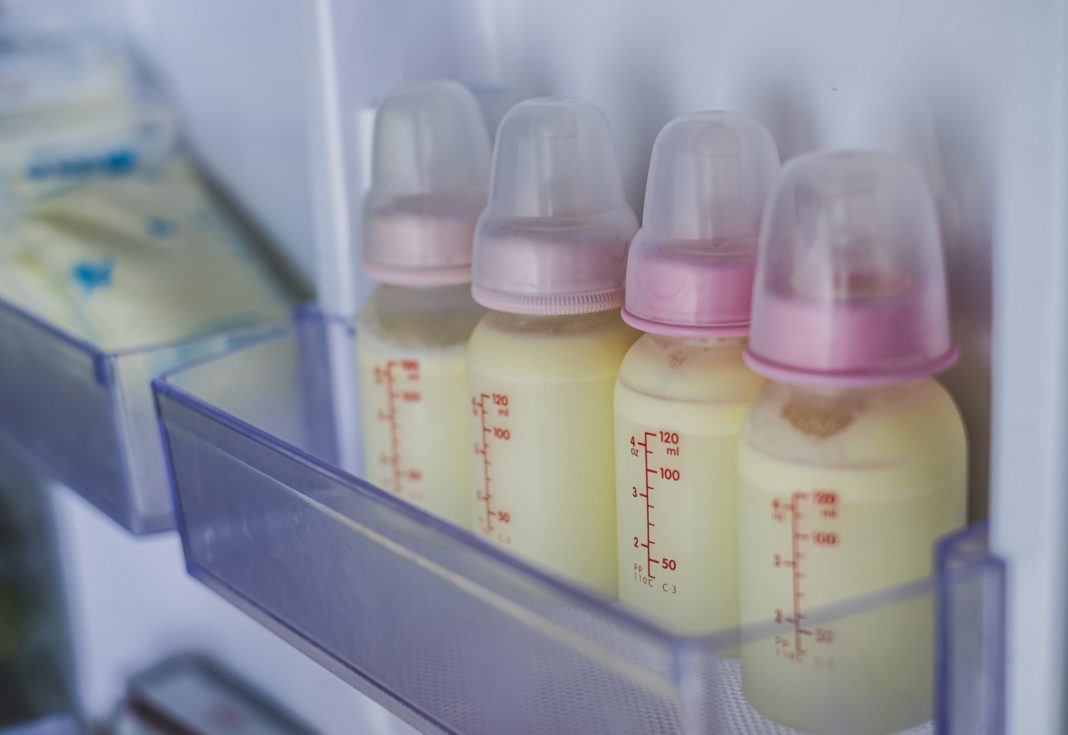Marijuana use is as old as the plant itself. Now that states across the country are legalizing it for medicinal or recreational use (or both), researchers are taking a fresh look at how marijuana affects people in specific ways. One surprising new study published by the American Academy of Pediatrics shows how breast milk containing tetrahydrocannabinol (THC), the active chemical in marijuana, may have no dangers to preterm babies. This new finding could mean that chestfeeding parents in the NICU can safely feed their newborns while using products with THC.
The study examined records from 763 preterm infants from 2014 to 2020, where researchers noted that 17 percent of the birthers had tested positive for THC in their system during delivery. But when researchers compared preterm infants who were chestfed THC-positive human milk to infants who were formula-fed or chestfed milk with no THC present, they found no difference in breathing difficulty, lung development, or feeding issues.

"I have seen a significant increase in the numbers of both pregnant and breastfeeding parents who are using THC," says Jessica Madden, M.D., IBCLC, a board-certified neonatologist, pediatrician, lactation consultant, and an attending physician in the NICU at Rainbow Babies and Children's Hospital in Cleveland, Ohio.
"I have always allowed parents who use THC to breastfeed and provide pumped breast milk for their premature babies, as long as they do not use other illicit drugs, but encourage them to cut back since we do not know the effect of THC exposure on the long-term neurodevelopmental outcomes of preterm infants."
Madden points out that while the study is great news for infants who are exposed to THC-positive breast milk, this particular study only shows a glimpse of how THC affects developing babies.
"I will continue to caution them that we do not know the effect of THC on their babies' long-term brain development and milestones," she says.
Joel Gator Warsh, M.D., a board-certified pediatrician at Cedar Sinai Hospital in Beverly Hills, California, has also seen a rise in marijuana use in his patients. He explains that while the research in this newest study is encouraging, more research needs to be done.
"I recommend patients minimize exposure to all chemicals including THC when breastfeeding, but I do feel that the benefit of breastfeeding outweighs the risks from THC. If one has to decide to breastfeed or not, this study lends additional data that parents should continue to breastfeed as much possible and interested, even if using THC," he said.
The study did not look at cannabidiol (CDB) use, which has become widely popular to treat anxiety and other mental health issues. Although CBD is also found in marijuana, it is not the same as THC and does not cause a high. As marijuana becomes legal across the U.S., CBD oil is also being legalized and can be easily purchased over the counter and is often touted as being as safe as vitamins. The only CBD product that the Food and Drug Administration has approved is a prescription brand Epidiolex, which treats epilepsy. No current studies show CBD or THC is 100 percent safe for use during pregnancy or chestfeeding.
"Practicing in Colorado as one of the first states to legalize marijuana, we did see an increase in usage," says Sonal Patel, M.D., CLE pediatrician, neonatologist, and breastfeeding specialist. "[Pregnant people] were getting mixed messages. Their OBs would approve marijuana for nausea, and we, as pediatricians, would make them stop. This study is encouraging to know that concert data will help guide recommendations but still cautious moving forward."
The biggest concern we heard from medical doctors about breast milk health is not about THC exposure but essential nutrition and health of the birther or person chestfeeding.
"The number one thing I see in my practice is that [birthers] are not eating and not taking enough nutrition in for themselves," says Dr. Patel.
To help keep human milk safe and healthy, Dr. Patel says that new chestfeeding parents should limit or abstain from THC while nursing. In addition, it is wise to avoid alcohol, smoking and vaping, and illicit drug use. Any medications should be cleared with a pediatrician or lactation consultant for safety.
"Do not informally milk share if you have a preterm infant," advises Dr. Patel, "preterm infants are susceptible to infections with bacteria and viruses, and, from a safety standpoint, if they receive donor breast milk, it needs to come from a dedicated milk bank or supplier where it is either pasteurized or sterilized prior to consumption."
Questions still swirl around the safety of THC in breast milk. Dr. Madden suggests that future research should include the dose and duration of THC and CBD in human milk. "We also need larger numbers of THC and CBD exposed babies in clinical studies to see if there is a difference in both short and long-term outcomes after THC and CBD exposure according to gestational age. For example, are outcomes different for an infant born at 22 weeks versus 32 weeks versus 42 weeks? If we find that THC exposure has negative effects in certain populations of preterm infants, this would definitely affect our counseling of [chest]feeding parents."
Currently, the Centers for Disease Control and Prevention (CDC) does not support the use of THC in chestfeeding parents. Until more research and studies are available that can demonstrate the short and long-term effects of THC on a developing infant; the standard recommendation is to avoid THC.

































